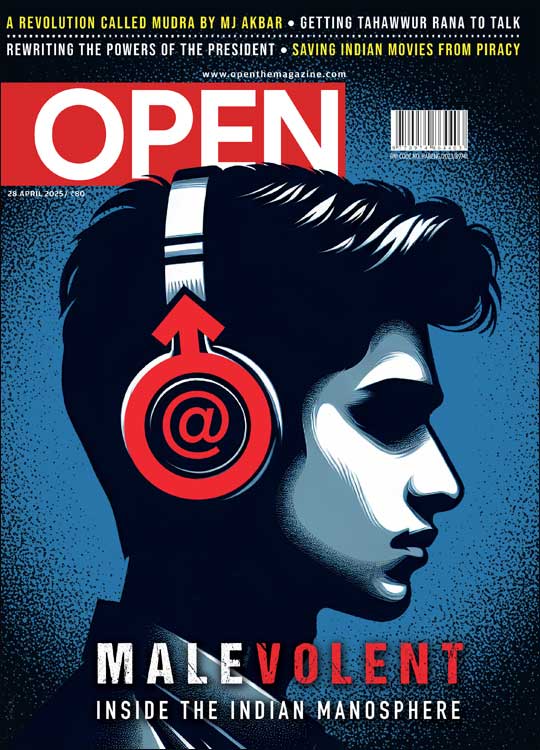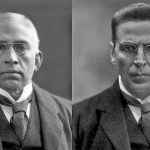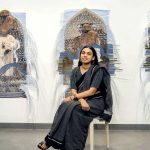The English Goddess Who Went Away
Three years ago, a temple was built here to the English Goddess. It was to be a medium of Dalit emancipation. But she disappeared as suddenly as she had come
 Chinki Sinha
Chinki Sinha
 Chinki Sinha
|
13 Sep, 2013
Chinki Sinha
|
13 Sep, 2013
/wp-content/uploads/2015/11/goddess1.jpg)
Three years ago, a temple was built here. But English Goddess disappeared as suddenly as she had come
BANKA, UTTAR PRADESH ~ There could have been a black temple here. The entrance might have said ‘Paradise Lost’ after John Milton’s poem about man’s disobedience and ouster from the Garden of Eden. Milton intended the poem to justify the ways of God to men. There was no justification intended here. The temple was meant to celebrate the outcastes, the fallen—Paradise Lost would be a refuge. Within its walls, Dalits would chant ‘ABCD’ and solve mathematical equations. They would denounce other gods and goddesses who perpetuate caste barriers.
The goddess wore a hat, a gown, and had gold hair. She looked like a Statue of Liberty knock-off. Chandra Bhan Prasad, the man who created her, says there were modifications made to give the new goddess her own mythology. The Goddess of English held a keyboard and a pen. She was atop a computer on the screen of which was the chakra of the Buddhist faith. She also held the Constitution of India to cement her bond with the Dalit community because Dr BR Ambedkar, the Dalit scholar and leader, was its founding father.
Why was the temple to be black? Because people would have found it strange. It would provoke reaction and this goddess was all about reactions. Black is seen as evil. The goddess would redefine black, give it sanction, says Bhan. This was Paradise Lost. They would regain it. But nothing happened. The English goddess went as suddenly as she came.
It has been three years since the English Goddess was first unveiled by Bhan at a function in the nondescript village of Banka in Lakhimpur Khiri, Uttar Pradesh. The Nalanda Public Shiksha Niketan, a government primary school there, was run by his friend Amarchand Jauhar, who donated land for the temple.
In Banka, almost 50 per cent of the population consists of Dalits. There are around 8,000 people in the village.
The goddess came but only just. After the first day, she was stacked away in the office of the headmaster and for a few days, remained there in hiding. The district administration shut the temple down because, it was rumoured, Mayawati, then Chief Minister, had said there could only be one Dalit goddess in the state. Bhan wrote to the administration asking for a reason and was told there was a Supreme Court directive that no temple should be built on public land without permission from the administration.
“We said this was private land, and they still said you can’t build it,” says Bhan. “They kept sending police officials. When we started building the roof, they came and stopped us.”
The goddess was transported to the house of the school owner in a nearby town. There she remains, hidden away till she can be installed once again. The expensive black granite that was bought for construction of the temple lies around unused. Rain pours down, washing away the dirt, and the stones glisten again. A dog seeks shelter in the old office from the rain. This is where the goddess had been moved after the police came to Banka and ordered that construction be stopped.
To the villagers of Banka, she had been introduced as a saviour of Dalits. There were speeches. They gawked at the goddess, and wondered where she had come from. They were intrigued, but also sceptical.
Bhan’s motivation for a temple like this was simple. In many villages in the country, segregation is rampant, with the ‘untouchables’ residing in cramped quarters, often without basic amenities. They are still forced into professions like manual scavenging, attaching to them a perception of being ‘unclean’. In most village schools, caste barriers are intact and Dalit children are discriminated against. Bhan wanted to pitch English as the antidote to their condition. Class and language, he argued, were the two most divisive tools in this country. In order to break those, the untouchables must own the language.
In Dalit households, he would see photos of Lakshmi and Durga. There was a vacancy for a goddess of their own. Christianity and Buddhism did not give them goddesses that were powerful and had their own unique domains.
“THEY SAID IF we worshipped the goddess, we would go abroad,” says Sonpal, a shiksha mitra (temporary teacher) in the school in Banka. He belongs to the Jatav community. He was there when the inauguration ceremony took place in May 2010. A few foreigners were also there, he recalls. On that hot afternoon, Bhan had worn a black suit, and was sweating profusely. The attire had been chosen with care deliberately because this was to be an anglicised ceremony.
We are in the school playground and a small crowd has gathered. Sonpal says he has never been outside his village. He wonders if the goddess has any temples in Delhi, the capital of the country. He is almost certain that she is worshipped in London.
“Like we have Saraswati, who reigns over the domain of knowledge, the British would have a goddess of their own. It was a privilege that she chose to come to Banka. I wish she had stayed. But we are so poor. It is an ugly village. I have seen London on television. It is beautiful. She didn’t like us very much,” he says. Sonpal has tried to learn English. When he speaks, he throws in a few words. But he wishes he could manage full sentences. The privilege of English is something else. You get respect, you get jobs, and you are no longer an outcaste, or a misfit, he says.
Arvind Kumar, 20 years old and a Brahmin, says the goddess was cast in bronze, and stood a little above two feet in height. To him, she looked like ‘Bharat Mata’ in a different costume.
“Times are changing. So it is okay for a goddess to be imported,” he says.
He is studying law, and wonders why the administration came and said all kinds of things. It started with a local official telling them that this was a ploy of the Christian missionaries to convert them.
Sonpal intervenes: “She looked a little Christian. Her attire was like the English,” he says. “Durga wears no hat.”
Then, in unison, they say they were certain she had come from London or America. It’s the same thing. “If the idea was to make us all Christians, then we are opposed to it. We have read in history that the English colonised us,” says Sonpal. “We can’t let them rule us again.” Others nod. “Bhola, she looked very western. She was Christian, right?” Bhola has no answers except a little anecdote. In a nearby village, some Dalits had embraced Christianity, which he figured was not the best way out of their plight.
The main question the villagers have is this: what was the point of this goddess?
Why had they brought her here of all places?
Avneesh is a Class 8 student. He was there when the ceremony took place. It was his uncle’s school, and he liked the goddess. “We were told to learn English,” he says. “I offered her flowers because they said if you worship her, you will become a big man. Then she disappeared.”
In Shahjahanapur, he found her again in his uncle, the principal’s house where the statue had been taken after the administration forced it to be removed. She was in exile. “She had made such a long journey,” he says. “Without English, our lives are incomplete.”
A woman walks into the crowd. Her name is Akhtari. “Build a mosque for English. We will offer namaz,” she says. “Why only a temple?”
The school is empty at this hour, and it is about to rain. But the crowd has gathered in the shed—which was to be the temple—with questions about the disappearance of the goddess. “Perhaps she didn’t like our village,” a man says.
The children have very vague memories of the day she was introduced. “London se chal ke aayi… (‘she came from London’),” a young boy recalls the song. He says she was quite a beautiful deity. She looked like Son Pari, a mythical fairy with gold hair.
In trying to create the goddess, Bhan, an atheist, knew he would also have to create a mythology for the goddess. Mystery was a key element. So he would pretend to whisper something in someone’s ear at gatherings in villages where he went to talk about the goddess. He did this at the inauguration too. Later, when the villagers would ask the person what Bhan was talking about, the man would say Dr Babasaheb Ambedkar found her in America when he went to Columbia University to study. He brought her here with him, and now she needs to be resurrected.
Intrigue would also lead people to attach their bits to the stories. In one version, a childless couple worshipped the goddess and they were blessed with a child. Bhan was also in talks with Dalit leaders to create a ritual where the groom would have to worship the goddess before he goes to the bride’s house for the wedding, and both of them together would pay obeisance to the goddess before the ceremony. That way, she would find a permanent footing in the local customs of the Dalits. He also spread stories about the Dalit Goddess conquering the cosmos, and the Chinese, Germans and French wanting to embrace the goddess. On the posters that he created and circulated across the country, he wrote that the goddess was waiting for unborn Dalit babies.
“I saw Dalits lacking in soft skills. I thought, let us deploy a metaphor that can convey the message fastest. Faith works best. I am an atheist. I thought I should create a goddess,” Bhan says. “The children of the poor are scared of math and English. If you can put up a statue of the goddess of English, then the fears are allayed. Fear of English will go away.”
Bhan had wanted to get 10 statues, but the cost was prohibitive. In the end, he got two. Each cost him Rs 40,000. He had used his own funds and collected some money from friends to build the temple.
In his house in East Delhi, the goddess— the second idol—occupies pride of place near the television on the windowsill.
The living room, with all the posters and photos of her, is almost a shrine dedicated to the memory of the goddess.
He conceptualised the goddess with artist Shan Swaroop Bouddh. When Bhan had gone to New York, he was fascinated with the Statue of Liberty. Later, when he was thinking about creating a goddess, the image came to his mind. Against the blue skies, the white statue epitomised freedom. He wanted the Dalits to be free and believed only English would help them.
He had learned the lessons in his own life. He was born in a village in the Azamgarh district of UP, and later went to Jawaharlal Nehru University. In between, he had become a Naxal, but revolutions do not work. Not those. He returned and is now writing a book on Dalit entrepreneurs.
Bhan does not believe in logic because there is no shock or surprise in it. In order to give legitimacy to an event, there have to be certain inexplicable things. He felt Dalits should connect to a high social marker and the goddess must, like the Statue of Liberty, be modern, tall and grand—Durga and Lakshmi must look like maids in front of her.
Bhan says he is trying to raise funds to make the temple but memories of the visiting goddess have faded in Banka. The myths that he created did not really travel outside the village nor did she become part of local rituals.
“It would not have worked had I just said ‘learn English’ to the children of the Dalits. Once women start worshipping the goddess, she acquires a different stature.
For instance, children will figure they will do well in English because the deity is there,” he says. While he speaks, his wife looks for the file that contains plans for the temple. Finally, she digs out those presentation papers with formulas that Bhan had wanted to inscribe on the walls of the black temple. The pink pen that the goddess holds is for the sake of colour. It could also be for other things. But that Bhan has left open to interpretation. In the making of a goddess, many things must be left open-ended, so stories can be attached from popular imagination.
“I’d drop some story in some village. Let people give life to the goddess. Let them create her antecedents. Let them give her a history,” he says. “I want to take her places. But I don’t want to hurry things.”
Before reaching Banka, we got taken to a wrong village by our car driver. We are in Banikpur, 100 kilometres away. We ask for the whereabouts of the goddess of English but they have not heard of her.
“There’s one goddess, but she has been around for a long time. Up that road,” a man points.
We ask a woman if she has heard of the goddess of English and she points to another village beyond the pond, wondering aloud if that is where she is installed. They would like to see her, but they are not sure who she is, and what she can do for them. For so long Mayawati ruled the state, and they are happy that a Dalit woman was able to rise so high. But don’t mind, they set out a disclaimer first, we haven’t got anything.
There is a school building, and a bunch of young men are playing cards inside. They scatter when we go looking for Ambedkar’s statue in front of the school building. We had been told that the temple was next to one such statue. But this is Banikpur, and there is no statue.
We can see a few houses protected with boundaries. They belong to the Brahmin families that own the land. The Jatavs, and the Pasis, and the rest of the Dalits till others’ land. They are still struggling, drinking bad liquor, gambling away whatever little they have earned because it occupies their mind.
Men walk like zombies, staggering, holding on to poles, straightening themselves.
They are drunk, and it is only afternoon.
It is sweltering hot, and most of them are sitting outside. A group of children are copying the English alphabet on their slates. The headmaster, who runs a little school under the shade of a tree near the banks of a pond, is trying to teach in English.A man we speak to says the daily drudgery is so tiring that any rebellion is ruled out.
“Perhaps Banka is better. That’s why they have the temple of English goddess there,” he says. But when we finally reach Banka, it does not look very different.

/wp-content/uploads/2025/04/Cover-Manosphere.jpg)











More Columns
The Pontiff Who Led by Example Sudeep Paul
Find the Best App for Personal Loans Open Avenues
Truth or Lies? Nandini Nair